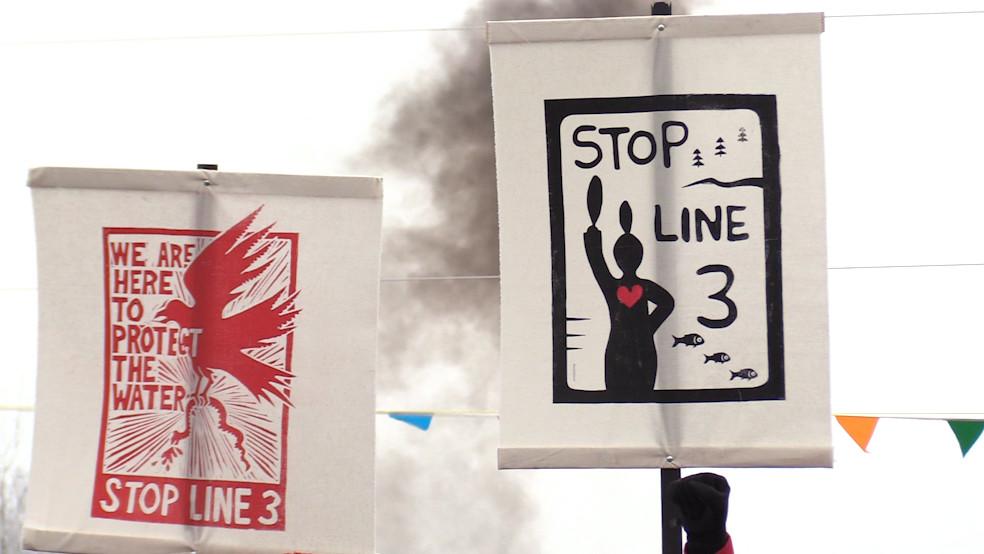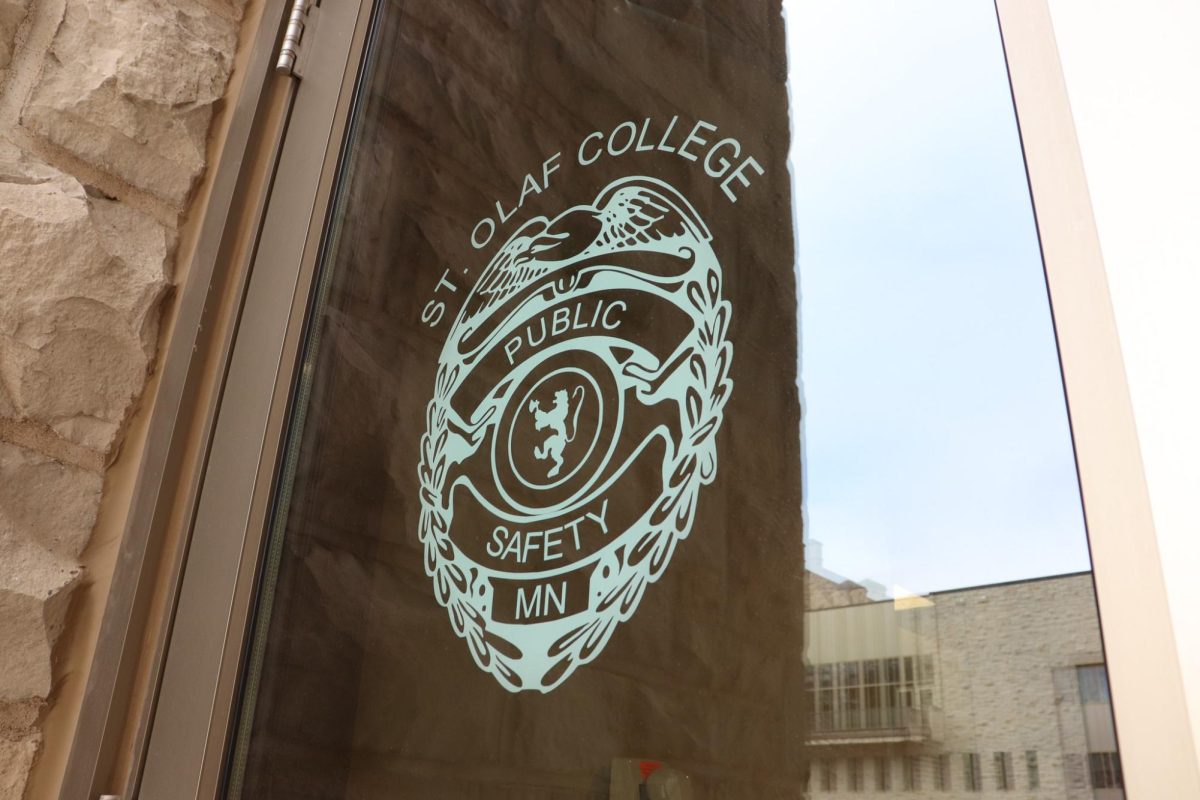A group of St. Olaf College students and Northfield community members spent their extended winter break in northern Minnesota protesting the construction of Enbridge’s Line 3 tar sands pipeline. As part of the Stop Line 3 movement, students participated in non-violent direct action, hoping to disrupt the construction and shed light on the dangers of the tar sands industry. Even though the Minnesota Pollution Control Agency (MPCA) granted Enbridge the final permits needed for construction in November, community members still braced the cold to oppose construction of the approved pipeline.
While the frontlines of the Stop Line 3 movement are in northern Minnesota, organizations have expressed support across the state, including groups in Northfield. Isaac Nelson ’21, Abby Becker ’21 and Imani Mosher ’21 created the Climate Justice Collective (CJC) at St. Olaf, a student organization dedicated to climate action. Their most recent focus has been on getting St. Olaf to divest from the fossil fuel industry.
After the campus-wide climate strike last fall, members of the CJC were introduced to members of Northfield Against Line 3 (NAL3). An organization created by Northfield community members, NAL3 is dedicated to protesting Line 3 and advocating for Indigenous rights. The organization hosts virtual non-violent direct action training for those looking to get involved in the movement. After attending NAL3 meetings, members of the CJC began to see the connection between the Enbridge pipeline and the divestment movement.
“There’s all these different ways our money and people are connected to the fossil fuel industry,” Becker said. “It’s all connected, and it’s all evil, and we think we are so far away from climate change but we’re not at all.”
While St. Olaf is not directly invested in Enbridge like other MIAC schools, its investment in the fossil fuel industry concerns student activists.
“If St. Olaf says they are investing in our futures, but investing our money in the very thing that is destroying our futures, then I think we need to make some change,” said Anna Mulhern ’22, member of CJC and NAL3.
While spending their winter breaks near the pipeline, Nelson and Becker saw the harsh reality of the construction taking place.

“It was really transformative,” Nelson said. “It was hard to see them build the pipeline and tear through the forest, ripping up the earth.”
Once completed, the Line 3 pipeline will carry about 800,000 barrels of oil a day, following a route starting in Alberta, Canada and ending in Superior, Wis. The pipeline will not only cut through 200 bodies of water, including the Mississippi River but will also disrupt Anishinaabe treaty land and several watersheds in northern Minnesota that are home to native wild rice. Violating multiple treaties with the Ojibwe people, the pipeline threatens Indigenous people’s access to water, land and hunting.
Expected to be completed in six to nine months, the pipeline presents issues surrounding climate change, Indigenous rights and public health concerns. The ongoing fight against Enbridge has been happening for the last several years while permits were tied up in a lawsuit.
On Nov. 12, MPCA granted Enbridge the final permits needed to start construction. Protesters gathered outside Minnesota Governor Tim Walz’s home to advocate against the pipeline, citing concerns over the thousands of out- of-state workers coming into small northern cities amid the pandemic, as well as the continued violence against Indigenous people, specifically women.
The Duluth News Tribune reported on Feb. 23 that two men employed by Enbridge were arrested in a sex traffiking sting in Itasca County. The influx of temporary workers on pipeline sites have been connected to an increase in sex traffiking of Indigenous women, adding to the already high rates of missing and murdered Indigenous women.
Returning from up North, St. Olaf students advocate for change and seek more involvement from fellow students. Furthermore, college students across the state of Minnesota and in Canada are banding together for a day of action.

Taking place on March 5, the day of action aims to apply pressure to colleges’ administration and investment policies. With each student body focusing on their school’s individual goals regarding divestment and fossil fuels, they advocate for the larger cause of climate justice and the Stop Line 3 movement. Members of the St. Olaf community are invited by CJC to participate in a “Die In” at Buntrock Plaza at 10 a.m. The Die In will feature 18 minutes of community members laying down, with each second representing each mile of the pipeline. This event is aimed to encourage St. Olaf to divest from the oil and gas industry, as well as highlight the dangers of pipeline construction. At 3 p.m, there will be a statewide virtual rally for those looking to learn more and become involved in the Stop Line 3 movement.
Disclaimer: Anna Mulhern ’22 is a Senior Reporter for the Messenger.





